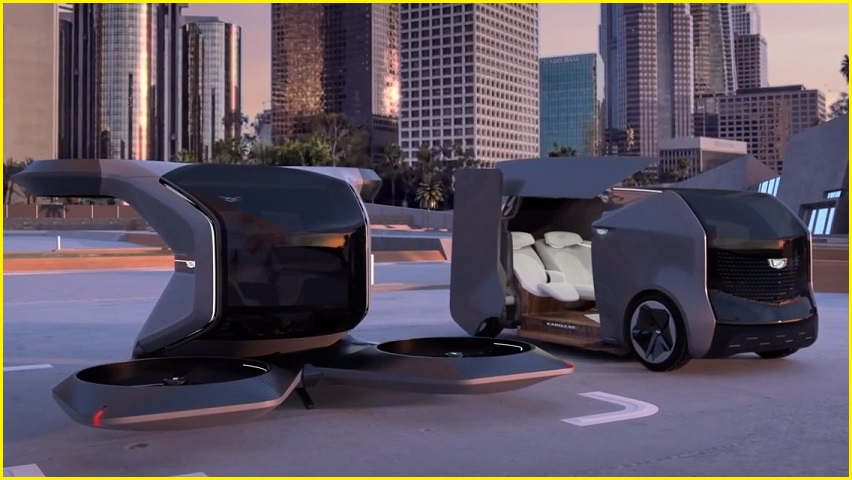The chaotic, crowded annual Consumer Electronics Show (CES) has long marked the kick-off of the new year’s technological advancements – but this year the show has bowed online given the obvious dangers and logistical impossibilities of bringing together over 170,000 people in Las Vegas.
Long known for combining cutting-edge technology demonstrations both serious and whimsical, CES continued the tradition through a series of virtual keynotes and presentations as industry leaders laid out their visions for the year and the future in general.
With a new presidential administration and Congress set to reboot the industry’s climate of innovation, Consumer Technology Association president and CEO Gary Shapiro said, “we hope to resume thoughtful, fact-based discussion about how technology is a force for good” in 2021.
“Our industry needs reasonable guard rails, so tech companies know what is legal and what is not, and that allows them to innovate.”
As with last year’s show, AI and 5G have been key themes throughout CES 2021 – with the application of machine learning and connectivity helping create what Shapiro called the ‘Intelligence of Things’.
Products, products, products
With keynotes from a slew of industry leaders across financial services, consumer electronics, entertainment, retail and more, CES 2021 was well packed with content – and more than 3000 launches of cutting-edge and off-piste products that will shape the industry through the year.
Key announcements included updated computer lines from the likes of Acer, Asus and Gigabyte, as well as AMD’s launch of a highly-optimised Ryzen 5000 mobile processor and RDNA 2 GPU-powered laptops to challenge Intel – which itself debuted dozens of new processors and talked up its coming 12th-generation ‘Alder Lake’ Core processor.
In a sign of the times, home-security firm Arlo launched a touchless video doorbell, Targus released an antimicrobial keyboard light and backpack, and gaming vendor Razer talked up a ‘smart’ N95 mask that incorporates a medical-grade respirator, active ventilation, and automatic sterilisation.
In typical tradition, there were smart TVs as far as the mouse could click, with LG debuting WebOS 6 based units with OLED screens and Samsung highlighting MicroLED TVs in 99-inch and 110-inch sizes, as well as new Neo QLED technology powering even thinner TVs with a host of connectivity features.
There were gaming laptops from Lenovo and monitors from the likes of Asus and LG, which also released a 4K laser-based video projector and demonstrated a rollable smartphone that is set to launch later this year.
Sony debuted its pending entry into the drone market, Asus released a portable LED projector, and wearable-tech firm Vuzix showcased smart glasses that use MicroLED technology to project images in front of the wearer’s eyes.
There were ‘smart vape’ devices that bring medicinal marijuana into the connected era, an on-demand pod-based ice cream maker, pod-based custom lipstick dispenser, a Samsung robot that can pour a drink, a voice-activated ‘smart bath’, and even a smart dog door with a dizzying price tag.
There’s nowhere near enough space to dive into details of all the announcements here, but gadget sites have been working overtime to keep on top of the eclectic flood of interesting new products and anoint best-of-show winners.
CES 2021 keynotes, sessions and announcements continue online until the end of this week.
Changes coming
Automotive giant General Motors had also shifted gears to support the COVID-19 fight during 2020, with chairman and CEO Mary Barra highlighting its retooling to manufacture ventilators and masks – more than 200 million and counting – as a way that the pandemic forced global industry to become more responsive and effective.
“We believe that after one of the most difficult years in recent history, this moment will prove to be an inflection point,” she said, with ‘electrification’ the key to unlock the company’s vision of a “world with zero crashes, zero emissions and zero congestion”.
“We believe we have the technology, the talent and the ambition to deliver on that commitment,” she said as the company debuted a new logo and highlighted a range of research projects such as a self-driving Cadillac, concept flying car, Chevy Bolt electric car, and electric delivery van with a range of 400km.
Artificial intelligence
Broader adoption of AI into everyday applications is “changing the way people work and live, how enterprises operate and how entire industries transform,” IBM global chief technology officer Bridget Karlin said in highlighting the myriad uses of the technology for solving societal problems.
“AI is one of the greatest opportunities of our time… helping solve the world’s toughest problems,” Karlin said, citing everything from agricultural optimisation and environmental change, to targeting healthcare and mitigating disruption, to delivering dynamically-personalised and updated educational content.
Providing the underlying compute power to scale machine learning has been a key focus for chipmaker AMD, whose president and CEO Dr Lisa Su highlighted the company’s partnerships with the scientific community during 2020.
“Scientists and researchers really pivoted on a dime to pool their resources to rally around research on vaccines, therapeutics, and other important learnings to combat and understand the pandemic,” Su said, noting that AMD’s COVID-19 High Performance Computing (HPC) Fund had donated over 12 petaflops of computing capacity to support researchers’ work.










